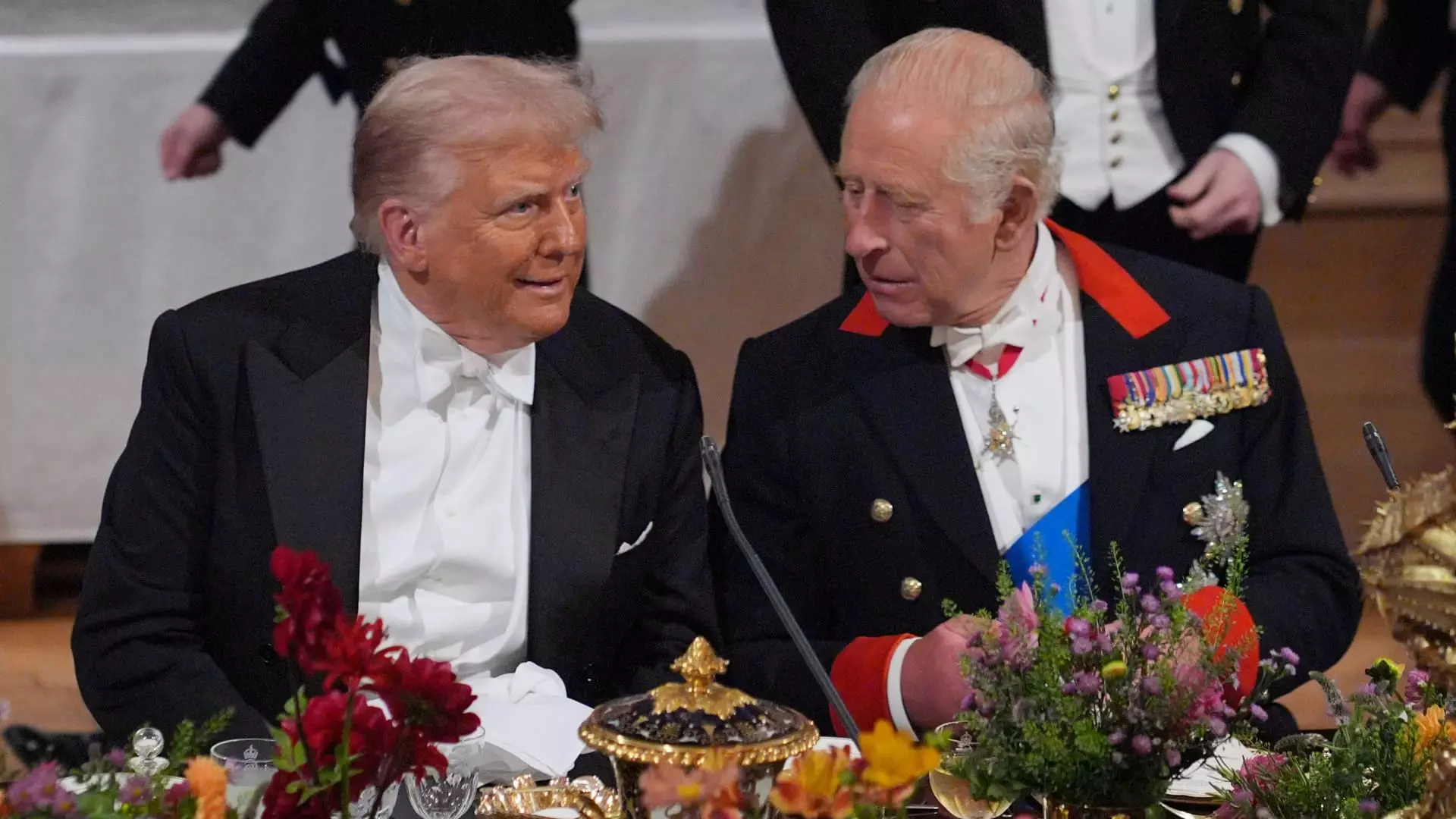Donald Trump’s recent state visit to the United Kingdom was undeniably staged with grandeur and pomp, but beneath that glittering veneer lies a more troubling reality. The entire spectacle, from royal ceremonies to ceremonial guard of honor, is a carefully curated illusion aimed at projecting strength and diplomacy. But in truth, these superficial displays often mask underlying issues: a fragile geopolitical stance, opportunistic economic pursuits, and a display of superficial diplomacy that risks undermining genuine international relationships. The British government’s investment in showmanship, rather than pragmatic policy, reveals a tendency to prioritize optics over substantive progress—an approach that ultimately diminishes the critical importance of diplomacy rooted in mutual respect and honest engagement.
The farcical grandeur of Windsor’s royal events, while visually captivating, obscures the nature of these diplomatic dealings. The focus on elaborate ceremonies and high-profile meetings may serve to elevate national prestige but do little to address the very real, complex issues at hand. This approach can foster a dangerous illusion that pomp and circumstance can substitute for meaningful negotiation, especially when deals hinge on aggressive trade policies and geopolitical posturing. The underlying message seems to be one of spectacle—masking the underlying fragility of alliances and economic dependencies that are more fragile than they appear.
The Fragile Foundations of Alliances and Economic Deals
The “economic prosperity deal,” signed amid the bright lights and diplomatic fanfare, promises hundreds of billions in investment, aiming to stimulate growth and create jobs. Yet, such commitments often pulse with more hype than substance. These deals, while heralded as triumphs, can be superficial gestures—grand in scope but potentially shallow in implementation. On the core issue of tariffs and trade barriers, the UK’s desire to reduce steel and aluminum tariffs from 25% to zero exposes a fundamental weakness: reliance on uncertain trade policies and the unpredictable nature of transatlantic relations.
This is especially worrying given the current global geopolitical climate. The escalation and ongoing conflicts in Ukraine and the Middle East are not just background noise—they are crucial, tangible concerns that demand serious diplomacy. Yet they risk being overshadowed by tunes of investment figures and ceremonial salutes. Trump’s focus on wooing the UK with promises of improved trade sounds impressive, but it raises questions about sincerity and long-term commitment. Is this truly an effort to forge a balanced partnership, or merely a strategic move to leverage economic gain regardless of the geopolitical cost? The realpolitik at play here suggests that economic interests often trump genuine alliance-building, ultimately leaving both nations vulnerable.
The Myth of Personal Charm and the Illusion of Mutual Respect
Trump’s interactions with British officials and citizens, marked by his characteristic bravado and theatrics, have long been the subject of debate. His declaration that being invited twice to Britain was one of his “highest honors” might resonate with domestic supporters, but it underscores a troubling trend: diplomacy reduced to personal showmanship. While the crowd enthusiastically cheered, the true weight of such “honors” is often hollow. These displays of personal rapport, seemingly friendly, often obscure deeper disagreements and strategic misalignments.
The royal praise, centered around “finding solutions,” fits neatly into this theatrical narrative—yet, it glosses over the hard realities of international diplomacy where such solutions are anything but straightforward. Furthermore, the British government’s eagerness to impress Trump with lavish ceremonies reveals a desire to appeal to a figure whose diplomatic style leans heavily on bravado and spectacle. This mutual need for showmanship undermines the very principles of diplomacy—substance, patience, and honest dialogue—replaced instead with a performance that may ultimately be more about image than meaningful progress.
A Cautionary Reflection on Power and Performance
What this entire visiting spectacle implicitly reveals is a broader tendency among global leaders to equate strength with showiness. Our political culture often confuses spectacle with substance, perceiving headlines and large investments as indicators of real influence. But true diplomacy demands more than staged events and photo ops—it requires integrity, nuanced negotiations, and strategic patience. The current approach, exemplified by Trump’s visit, reveals a capacity for superficial engagement that can erode trust and foster cynicism in international relations.
In essence, political showmanship might temporarily elevate a nation’s image, but it risks impoverishing the vital art of diplomacy—an art rooted in honesty, humility, and a genuine commitment to addressing complex issues. When leaders prioritize grandstanding over thoughtful negotiation, the potential for meaningful solutions diminishes. The hope remains that behind the theatrical veneer, policymakers will recognize the necessity of moving beyond spectacle and engaging others with authenticity and strategic foresight. Only then can diplomacy truly serve the interests of the people rather than merely satisfying the theater of power.


Leave a Reply